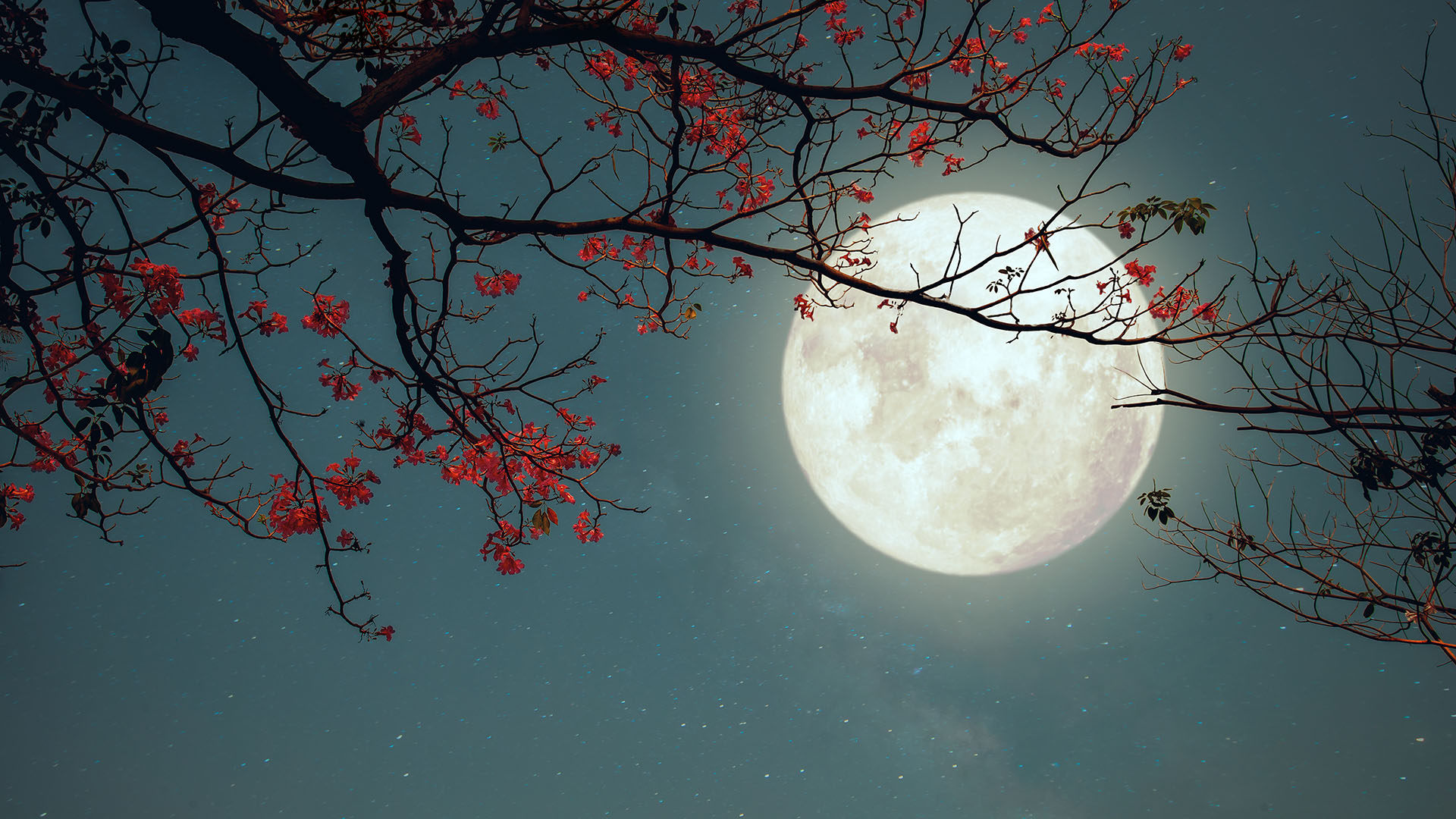
It isn’t just werewolves who find themselves active at a full moon – anecdotal evidence suggests a full moon might disrupt your sleep schedule. But can scientific research support the claim we sleep worse when there’s a full moon? And why might a full moon cause bad sleep?
In this article, we’ll explore whether the full moon might be the reason for your sleepless nights. We also provide some tips on how to sleep better, or head to our best mattress guide, for a good night’s sleep no matter what the moon is up to. So, does a full moon affect sleep?
Can a full moon affect your sleep?
For millennia, people have theorized that the moon cycle plays a role in our health and wellbeing. Pliny the Elder even suggested a full moon caused a rise in brain moisture, leading to madness. While the science doesn’t support Pliny’s findings, there is some evidence suggesting a full moon could disrupt your sleep.
Research from 2006 indicates there might be more to the sleep-moon connection than just anecdotal evidence. This Swiss study found that, on average, participants slept 19 minutes longer during a new moon (when the moon reflects no light) compared to a full moon.
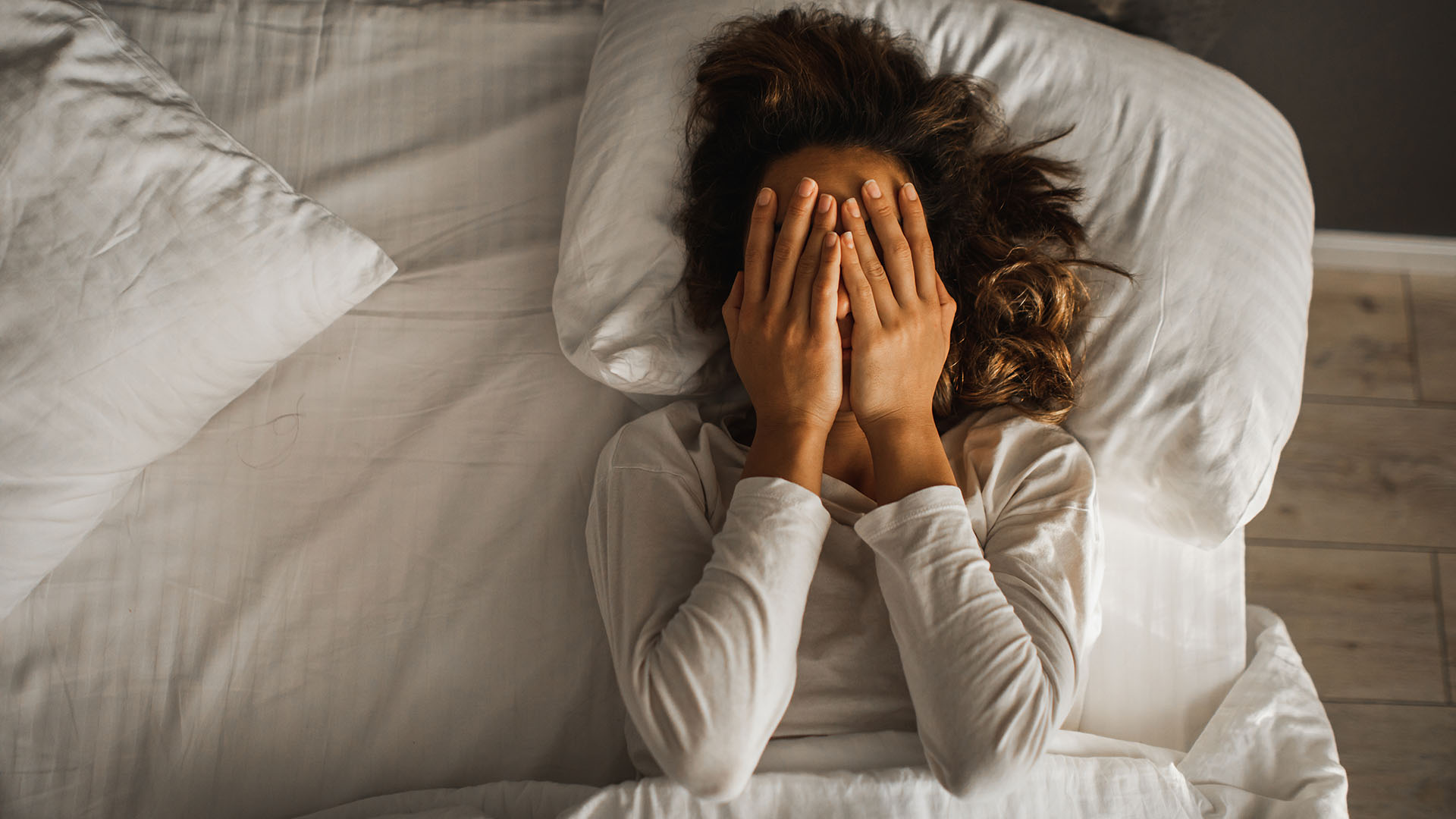
A 2013 study found similar results. Over the course of several months, research showed that in the nights leading up to the full moon participants took five minutes longer to fall asleep and slept for 20 minutes less. The results further indicated that participants were experiencing a less deep sleep than usual, showing a 30% decrease in electroencephalogram (EEG) delta activity during non-rapid-eye movement (NREM) sleep. A 2014 study supported these findings, recording sleep time decreasing by 25 minutes around the full moon.
A comprehensive 2021 study further solidified the moon-sleep connection. This study followed the sleep habits of contrasting communities: indigenous Argentinians and a group of students at the University of Washington. Despite the very different settings, all groups of participants showed similar results: sleep started later and didn’t last as long in the week before the full moon. The similarities in sleep patterns, despite the environment differences, led the researchers to suggest our circadian rhythms might be linked to the moon phases.
It isn’t just adults that might feel the effects of a full moon. A wide-scale 2016 study followed 5,812 children aged between nine and 11. Although the children only registered a minimal difference at the full moon (1% shorter sleep), the size of the study makes it worth consideration.
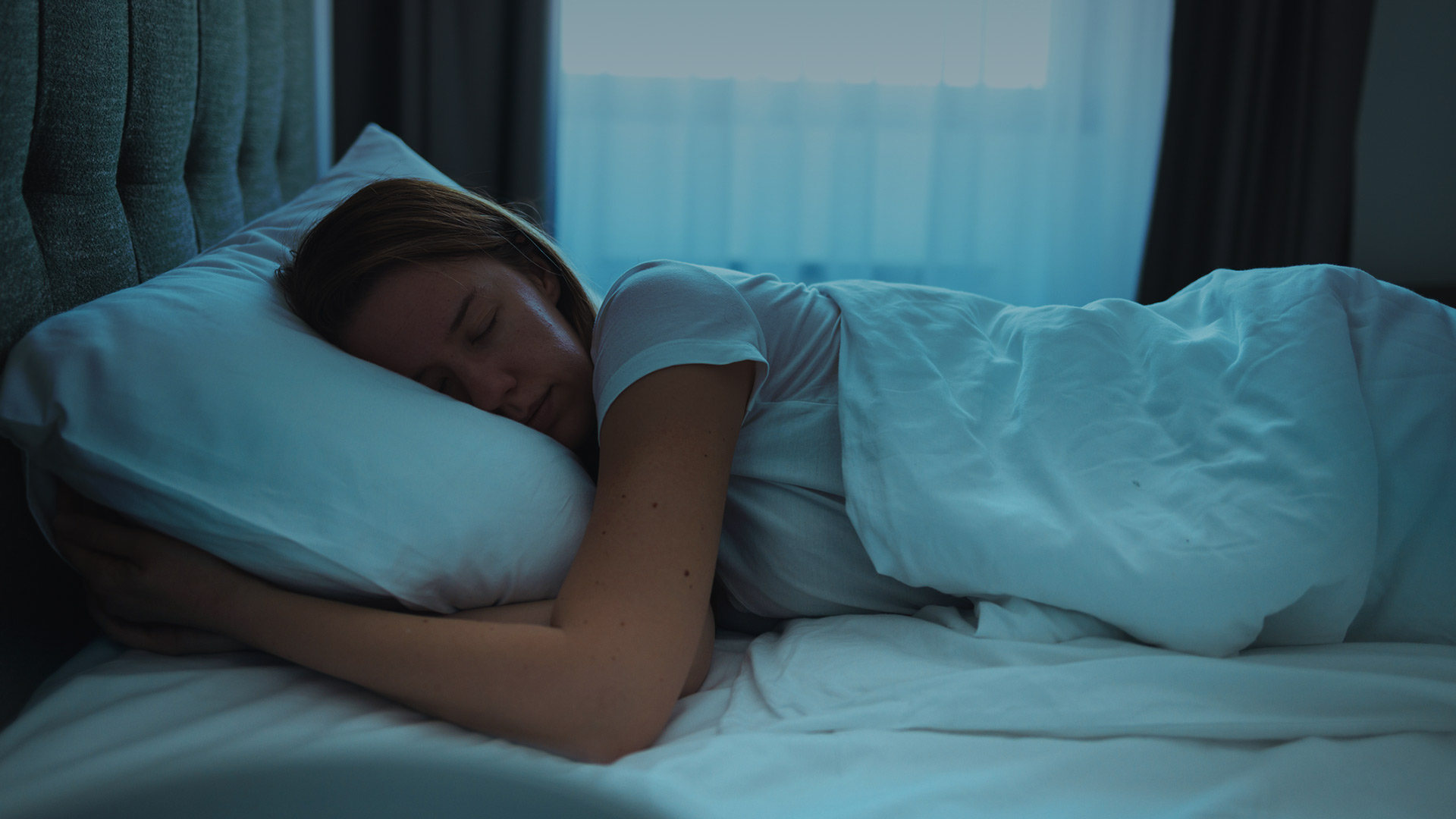
Gender might also play a role. This study from 2015 indicated that during a full moon women tend to experience a decrease in REM sleep, while men actually encounter an increase in REM sleep. Rapid-eye movement (REM) sleep, sometimes known as active sleep, is the stage in which most dreams occur, and it’s thought to help with learning and memory.
Not all experts are convinced. This study from 2015 tracked the sleep schedules of 2,125 participants – and found only a nonsignificant trend of better sleep during a new moon phase. While we won’t rule out a connection between a full moon and less sleep, more research needs to be done before we can conclude the link is definitely there.
Why might a full moon affect sleep?
For most of us, the moon tends to play a very small part in our day-to-day lives. So why might the lunar cycle have an effect on our sleep habits? A few different theories have been proposed, but right now, we’re lacking compelling evidence for any explanation.
Light
The most common theory is that the increased light levels during a full moon cause us to sleep worse. Moonlight is the result of sunlight bouncing off the moon and reflecting back to Earth. During a new moon, the moon sits between the Earth and the sun, so no light is reflected. But when the moon is on the opposite side of the Earth to the sun, sunlight can bounce off the entire face, leading to a bright full moon.
Light plays a vital role in our sleep habits. Our sleep-wake cycles are the result of fluctuations in hormone levels caused by changes in light. That’s why we tend to feel more awake on a sunny morning and sleepy on a dark evening.
Although there is obvious logic to the theory that increased moonlight leads to less sleep, there are also some flaws we can’t ignore. Some sleep studies, such as this one from 2015, have taken place in artificial environments. Participants slept in a windowless room, but their sleep cycle still seemed to react to the moon.
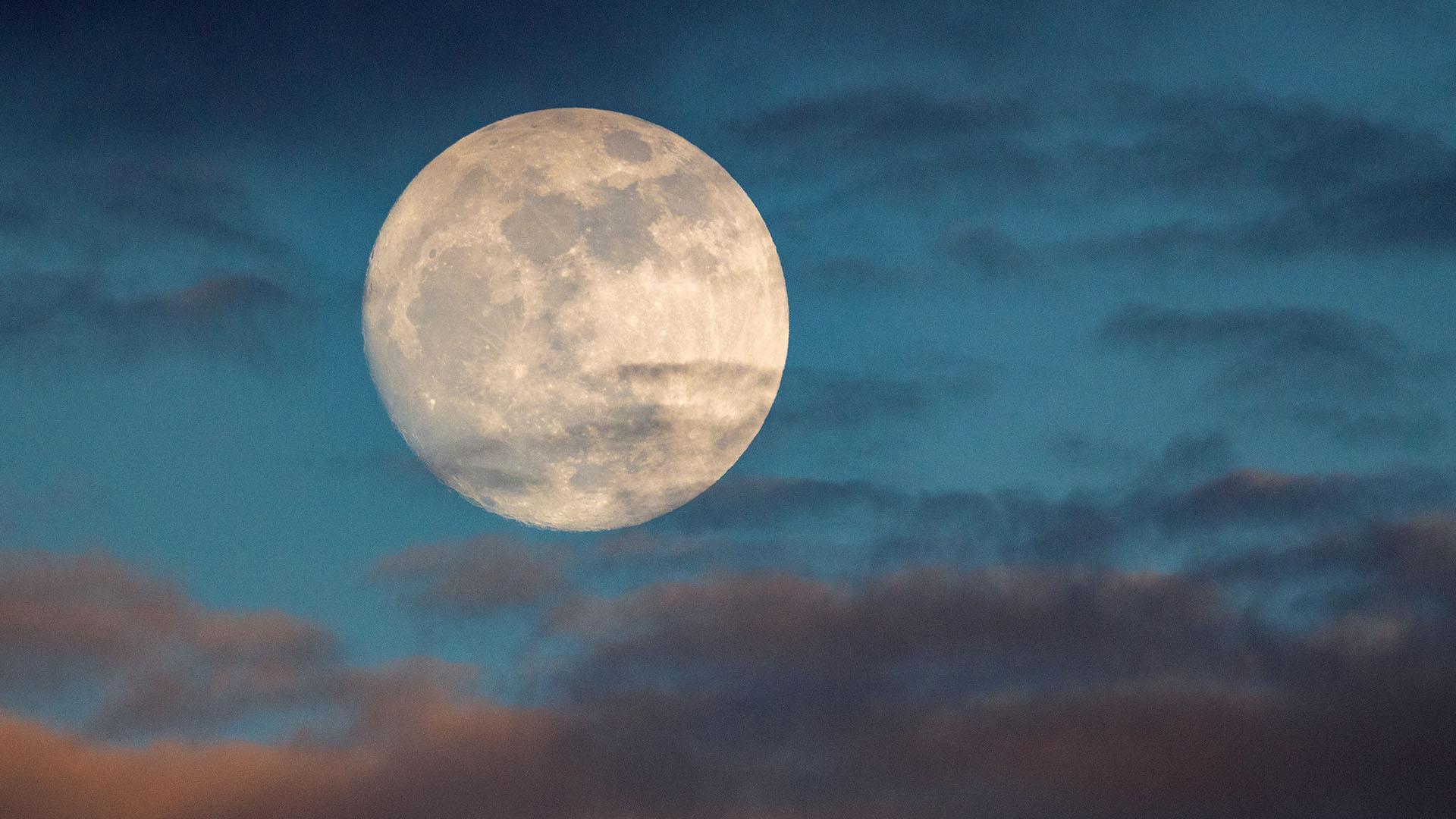
The large-scale 2021 study mentioned above theorized lack of sleep around the full moon links back to our pre-electric light lifestyles, when moonlight played a larger role in our nocturnal activities. However, the theory needs to be explored further.
Gravity
The gravitational pull between the Earth and the moon influences the changing of the tides. Research also suggests that the gravitational pull of the moon might affect the habits of plants and animals. If the moon can move bodies of water, might it move the water in our body? And might fluctuating gravity be the reason we appear to sleep worse during the full moon? Probably not, although the theory has been proposed.
Research from 2013 concluded that there is a link between the moon and sleep, but gravity is unlikely to play a role. While the pull of the moon can affect large bodies of water, such as the sea, it doesn’t influence the comparatively minuscule amount of water in the human body.
Electromagnetism
Another theory is that the movement of the moon disturbs the electromagnetic field of the Earth, which in turn influences our sleep cycles. However, there’s little evidence to support this.
Tips for sleeping better during a full moon
While there is both anecdotal and scientific evidence suggesting a full moon might affect sleep, it’s hard to draw any solid conclusions. In addition, if the full moon does disturb sleep, the jury is divided on exactly why this happens.
No matter what stage the moon is at you can always benefit from practicing good sleep hygiene.
1. Limit evening screen time
Increased light from the full moon may or may not affect sleep, but sleep experts largely agree that limiting exposure to blue light can help you sleep better.
Blue light, such as the light from screens, suppresses melatonin production, making it harder to fall asleep. Aim to turn your screens off a few hours before bedtime, to allow your melatonin levels to rise and for that sleepy feeling to kick in. If a screen embargo seems a little too hard, try changing your devices to ‘night mode’. Learn more about how screen time can affect your sleep with our guide.
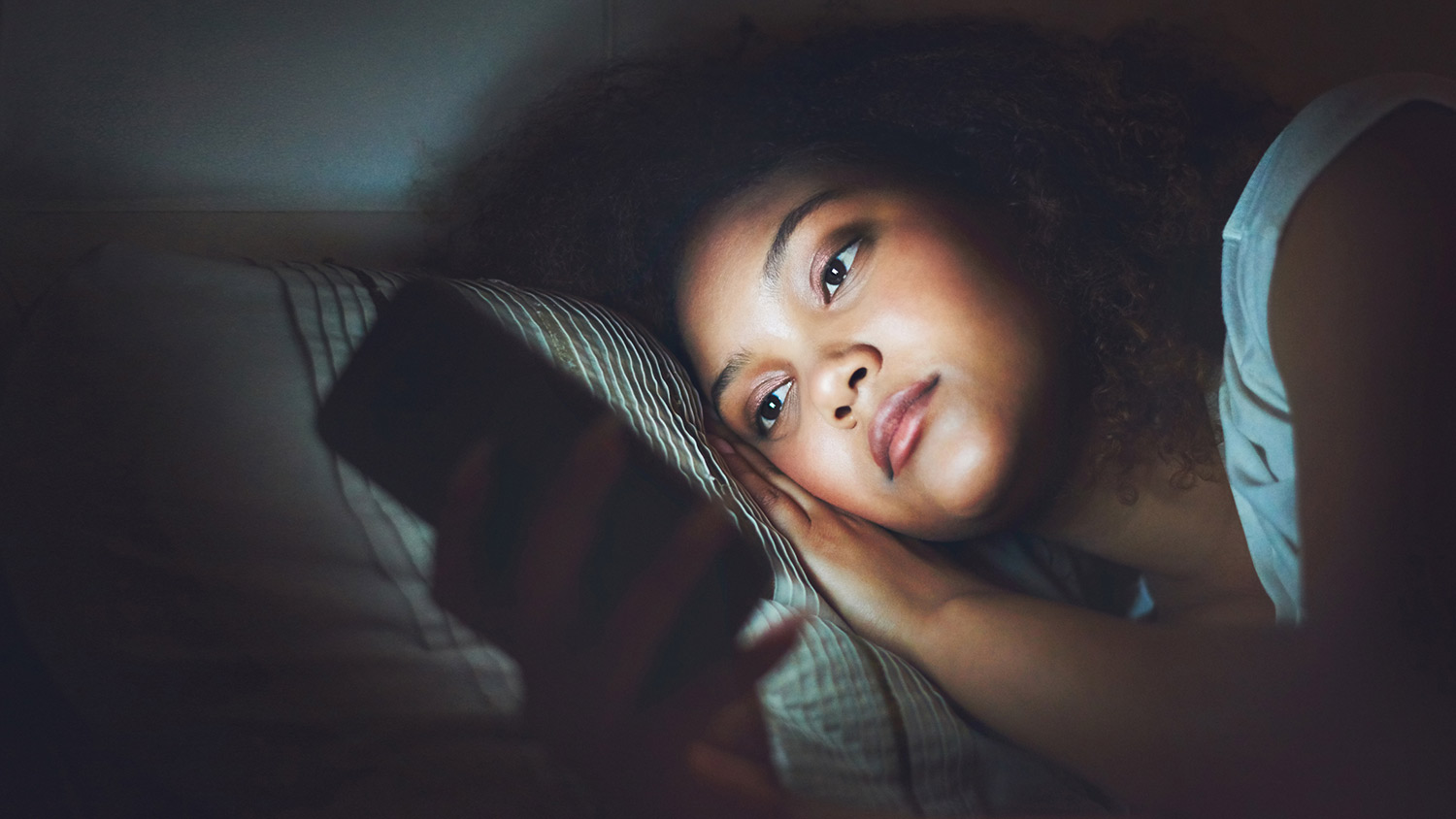
2. Keep your bedroom cool
A bright full moon appearing in the early evening is one of the first signs that winter is here. But although the nights are turning cooler, avoid turning the thermostat up overnight. Your body cools as it prepares to sleep and if you have the thermostat too high, your overheated body could keep you awake. Choose one of our best cooling mattresses, to achieve the perfect sleep temperature.
3. Try practicing moon breathing
The aptly named ‘moon breathing’ technique could help you sleep better at the full moon (and every other night). Moon breathing is a simple yoga technique used to calm the body before bed. Yoga expert Gemma Nice from MattressNextDay describes the positive effects of moon breathing: “it allows you to regulate your breath, heart rate, and nervous system, allowing you to feel calm, relaxed, and sleepy.”
Moon breathing is an easy technique to master: close the right nostril with your finger and inhale through the left nostril. Then, cover the left nostril, uncover the right nostril, and exhale. Repeat this pattern until you feel your body and mind start to relax.







